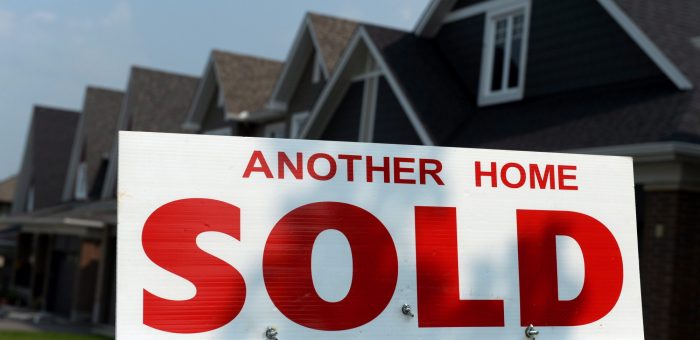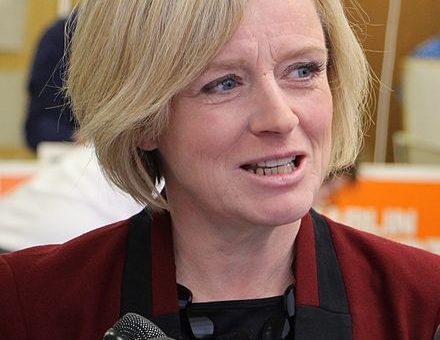Issues & Community Blog - Andrew Weaver: A Climate for Hope - Page 105
Statement on B.C. Home Partnership
Media Statement, Dec. 15, 2016
Statement from Andrew Weaver on B.C. Home Partnership
For immediate release
VICTORIA B.C. – Andrew Weaver, Leader of the B.C. Green Party, is calling the B.C. Home Partnership a populist, short-sighted, and irresponsible move.
“The cost of purchasing a home has gone through the roof in this province because of irresponsible speculation and government inaction. The reason people can’t afford a home isn’t because the downpayment is too big – it’s because the average home in Vancouver costs more than $1 million. That’s the real problem, and this government is avoiding it entirely.
“Instead of tackling the real problems that are causing out of control housing prices – like deregulation and speculation – the government is announcing a band-aid solution that will build an even bigger housing crisis down the road
“We have seen the dangerous consequences of this type of policy in the United States. It became easier and easier for people to take on unaffordable mortgages, leading to crippling debt, the collapse of the housing market and first-time home buyers losing their livelihoods. The whole point of having a downpayment is to protect people from unmanageable debt. That’s also why the federal government recently increased the stress test for high ratio mortgages.
“The fact is, people should not have to take on a dangerous amount of debt to afford a home. The only reason they have to do that right now is because the B.C. Liberal government failed to act to keep housing prices affordable. Now, they are choosing to implement populist, short-sighted and irresponsible programs that download risk on to vulnerable people who are just looking for a way to improve their lives.”
– 30 –
Media contact
Mat Wright, Press Secretary, Office of Andrew Weaver, MLA
+1 250-216-3382 | mat.wright@leg.bc.ca
MLA Report: Fentanyl crisis shows need for comprehensive, proactive approach
As I sat down to write this article, with a dozen tabs open to fentanyl-related stories and studies, a new headline made its way to the front page and it hit me like a tonne of bricks. “Overdose deaths involving fentanyl fill Vancouver morgues to capacity.” One life lost is heartbreaking; the scale of this emergency can hardly be articulated in a way that respects and represents the grief felt around B.C.
The situation in Vancouver is particularly dire, but fentanyl-related overdoses are happening all over the province and our riding is no exception. The reach and magnitude of this crisis has been tragic. The fact that it has only continued to escalate since the B.C. Ministry of Health declared it a public health emergency on April 14 is horrific in its own right.
Also in the news at the time of writing is an article in the Vancouver Sun that reads “the B.C. government is almost doubling its advertising spending [to $15 million] five months before the provincial election, but the minister responsible says it’s to raise awareness of the fentanyl overdose crisis…”
People are dying. We need to help them, not make ads about them.
In 2009 when H1N1 hit B.C., the province put $80 million towards fighting the flu that killed 57 people. Illicit drug overdoses have killed 622 people in the first 10 months of this year, surpassing car crash fatalities to become the leading non-natural cause of death in B.C.
By their own, arguably generous, estimate the provincial government has spent $15 million to prevent and respond to overdoses. Yet even their plan to create 500 new addiction treatment spaces by 2017, a promise made by the premier in the 2013 election, remains unmet. So far only 220 new spaces have become available. And during the same period, the number of substance-abuse treatment beds for young people has dropped 25 per cent to just 89.
The government’s resources thus far have largely been focused on collecting data and distributing naloxone kits, a medication that can reverse the effects of an opioid overdose. They are important initiatives, to be sure, but they are reactionary. They kick in when someone is already in the throes of an overdose. If we want to get ahead of this crisis, we need to step in with a comprehensive plan to support people before they are that close to dying.
Reports released by researchers with the University of Victoria’s Centre for Addictions Research of B.C. (CARBC) provide evidence of the inadequacy of government responses to this emergency, but they also detail a path forward.
For Victoria specifically, they write that by delaying the implementation of supervised consumption services – despite the indications of a growing overdose epidemic and widespread reports of washrooms in social service agencies being used as unofficial and unsupervised injection sites – the province is ignoring the evidence.
As Dr. Bruce Wallace and Dr. Bernie Pauly, researchers at CARBC and faculty members at UVic, wrote in the Globe and Mail, “What is needed is a more comprehensive approach.
“This should include supervised consumption as well as increased access to treatment and opiate-substitution therapy. There is a wealth of evidence that supports the effectiveness of supervised consumption services in preventing overdoses, preventing the transmission of blood-borne disease and increasing access to referrals to treatment and opiate substation therapy.”
Last week Island Health finished the public consultation phase of their application to open a supervised consumption site in Victoria. I hope you will join me in imploring the provincial government to do everything in its jurisdictional power to support this process along, as well as follow CARBC’s recommendations to increase the number addiction-treatment facilities.
Statement on Premier Clark’s obstructionist approach to Pan-Canadian Framework on Clean Growth & Climate Change
For Immediate Release
December 9th, 2016
Weaver’s Statement on Premier Clark’s obstructionist approach to Pan-Canadian Framework on Clean Growth and Climate Change
VICTORIA B.C. – “Following reports that the Arctic sea ice extent has hit a new record November low, Premier Christy Clark actively obstructed National efforts to address climate change,” says Andrew Weaver, Leader of the B.C. Green Party. “The challenges are too big, the consequences are too profound, and the opportunities are too significant for British Columbia to continue to be a barrier in the formulation of a national climate plan. Premier Clark is risking Canada’s national climate plan so she can turn it into a populist election issue in BC.”
Joining her two Conservative counterparts in Saskatchewan and Manitoba, Premier Clark blindsided the federal government today with her attempts to derail the development of a national climate plan. While begrudgingly agreeing to sign on late in the day, Premier Clark once more missed an opportunity to demonstrate leadership on this file.
“We need a diversified, sustainable 21st century economy–one that will serve today’s generation without burdening generations to come. And being a leader in that transition is where the economic opportunities lie. As it currently stands British Columbia is still recklessly chasing the LNG pipedream while literally paying corporations to take natural gas out of the ground. This approach does not serve today’s British Columbians well, and it is sabotaging opportunities for the next generation.”
“Windfalls will be enjoyed by those who move first with vision, not latecomers to a developed market. We should be identifying and seizing B.C.’s competitive advantages – our access to cheap, renewable energy, our educated workforce, our innovative business community, and the quality of life we can offer here.”
“A B.C. Green government would embrace a national climate strategy, increase the carbon levy and bring back in the Cap and Trade enabling legislation that was repealed by the Clark government.”
– 30 –
Media contact
Mat Wright, Press Secretary
+1 250-216-3382 | mat.wright@leg.bc.ca
Premier Notley Responds Negatively to My Request for a Public Meeting
In what has turned out to be a bizarre set of emails with Rachel Notley’s office today, it now appears that there will not be a public meeting after all. So the net result of Ms. Notley’s trip to BC was a closed door back room event with John Horgan, and a number of radio interviews wherein she talked at British Columbians. This hardly builds trust especially since Mr. Horgan has changed his opinions on the Kinder Morgan pipeline so many times, I’ve lost count.
Talk about lack of transparency. If Ms. Notley wanted to engage British Columbians she would listen to them, not talk at them. She has not listened and both Ms. Clark and Mr. Horgan have remained silent.
Below I reproduce both letters I received today. Now I have asked countless people about their interpretation of the first letter. It was unanimous that people felt that this was to be interpreted as an invitation for a public meeting. The second letter is pretty clear.
Text of the First Letter
Dear Mr. Weaver:
On behalf of Premier Notley, thank you for your email. I appreciate you reaching out and I have shared your invitation with Premier Notley and her scheduling staff to organize a public meeting between you and her team.
Premier Notley’s scheduling staff will follow up with you shortly.
Regards,
Sonya McAdam
Premier’s Correspondence Unit
Text of the Second Letter
Dear Dr. Weaver,
Thank you for your letter of December 5th, 2016 to Premier Notley. Unfortunately, we are unable to oblige your request.
Sincerely,
Miriam Rycroft
Director of Scheduling, Office of the Premier
Premier Notley Responds Positively to My Request for a Public Meeting
Earlier today I received an email from Rachel Notley’s staff (reproduced below). The email accepted my request for a public meeting on the Kinder Morgan pipeline. While details are scant at this stage, and I’m not sure what a meeting with “her team” means, I am very pleased that British Columbians will be given an opportunity to witness a public discussion on the issue of the Kinder Morgan pipeline.
As the only MLA who served as an intervenor on this project, I will be bringing forward the myriad concerns that I highlighted during the National Energy Board Hearings. In addition, as a climate scientist who has served as a Lead Author on the 2nd, 3rd, 4th and 5th Intergovernmental Panel on Climate Change scientific assessments, I can relate this infrastructure project to the goals that Canada agreed to when it signed the Paris Accord last year.
Text of the Letter
Dear Mr. Weaver:
On behalf of Premier Notley, thank you for your email. I appreciate you reaching out and I have shared your invitation with Premier Notley and her scheduling staff to organize a public meeting between you and her team.
Premier Notley’s scheduling staff will follow up with you shortly.
Regards,
Sonya McAdam
Premier’s Correspondence Unit







